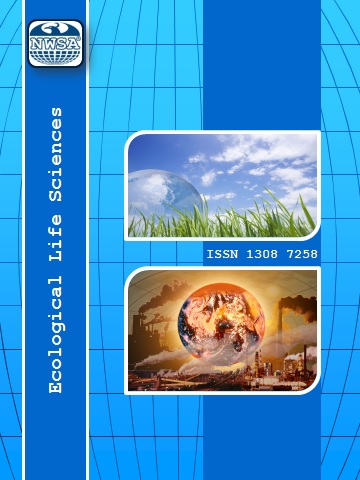CLIMATE CHANGE (CC) IMPACTS ON FIELD CROPS: A GENERAL APPROACH
Hakan ULUKAN1
The field crops, like all other cultivated plants, are very sensitive to the CC with its inseparable components as known greenhouse gases (GHGs) emissions which were composed of CO2, CH4, N2O, Water Vapor, CFCs, etc.. For instance, rice (Oryza sativa) crop plant takes the biggest share of 94% from the GHGs emissions as CH4. As a strong member of the Green House Gases (GHGs) emission, the CH4 has 300 times higher efficiency than the CO2 and 20 times strong in this respect than the water vapour (or H2O) in the atmosphere. As known, the most dangerous of GHGs is the CO2 for the all living organisms and non-living things. The GHGs emission has positive up to one degree- (the CO2 fertilization, etc.) and/or negative (acid rains, fog, floods, hail, etc.) impacts on flora. According to scientific research findings, the worlds mean temperature (1.4-5.8oC) will rise by the end of the year of 2100 and affect the many plants, ecologies, ecosystems and climatological parameters as locally or regionally or continentally. Particularly, climate change will increase of the field crops growth and development stages, water use efficiency (WUE) balance(s), accelerates the ripening, reduces the yield (dry matter) and nutrient input/taken, etc. with another morphologic, phenologic, metabolic and biochemical traits.
Keywords
Climate Change,
Greenhouse Gases (GHGs),
Global Warming Field crops,
Flora,
Water Use Efficiency (WUE),
 +90(535) 849 84 68
+90(535) 849 84 68 nwsa.akademi@hotmail.com
nwsa.akademi@hotmail.com Fırat Akademi Samsun-Türkiye
Fırat Akademi Samsun-Türkiye
